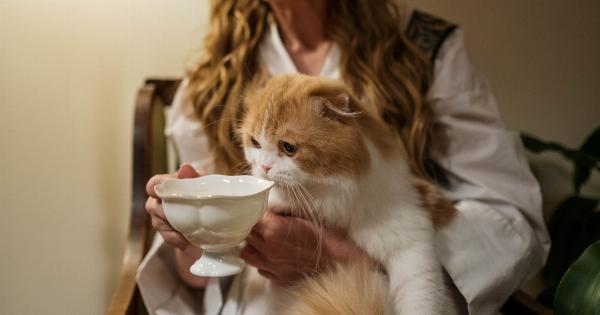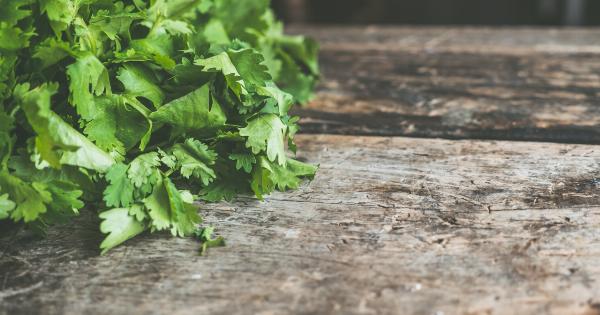Proper nutrition is vital for the growth and development of kittens. During their early stages of life, kittens require specific nutrients to support their rapidly growing bodies and ensure optimal health.
Providing a balanced diet tailored to their nutritional needs is essential in setting them on the path to a healthy adulthood. In this article, we will explore the importance of proper kitten nutrition and the key elements to consider when feeding your furry friend.
1. Essential Nutrients for Kittens
Kittens have unique dietary requirements that need to be met in order to sustain their growth and development. The essential nutrients for kittens include:.
- Protein: High-quality animal-based protein is crucial for the development of muscles, tissues, and organs.
- Fat: Healthy fats provide energy and support the development of the brain and nervous system.
- Carbohydrates: Though not as essential as protein and fat, carbohydrates provide a source of energy for kittens.
- Vitamins and Minerals: Kittens need a range of vitamins and minerals to support various bodily functions and promote overall health.
- Water: Adequate hydration is key to maintaining healthy bodily functions and preventing dehydration.
2. Nutritional Requirements at Different Life Stages
As kittens grow, their nutritional needs change. Here are the key nutritional requirements during different life stages:.
2.1 Nursing Stage:
During the nursing stage, kittens rely entirely on their mother’s milk for nutrition. The mother’s milk provides essential antibodies and nutrients that help strengthen their immune system and promote healthy growth.
2.2 Weaning Stage:
Around four weeks of age, kittens start the weaning process, transitioning from mother’s milk to solid food. Introducing a specifically formulated kitten food that is soft and easily chewed helps them adapt to their new diet.
2.3 Kittenhood:
From two to twelve months of age, kittens are considered to be in the kittenhood stage. During this time, their growth rate is rapid, and their nutritional needs are at their highest.
A balanced diet consisting of high-quality kitten food is crucial to provide the essential nutrients they require for healthy development.
2.4 Adolescence:
After twelve months, kittens are considered adolescents. While they may appear fully grown, their internal development is still ongoing.
It is important to continue feeding them a high-quality adult cat food that supports their overall health and helps prevent future health issues.
3. Choosing the Right Food for Kittens
When selecting a kitten food, it is essential to choose a high-quality, commercially prepared diet that is specifically formulated for kittens. Here are some factors to consider:.
3.1 Nutritional Adequacy:
Ensure that the food meets the nutritional standards set by reputable organizations, such as the Association of American Feed Control Officials (AAFCO). Look for statements like “complete and balanced” on the packaging.
3.2 Protein Content:
Check the protein content of the food. Around 30% protein is recommended for kittens. The protein source should come from animal-based ingredients, such as chicken or fish.
3.3 Avoid Fillers and Artificial Additives:
Avoid foods that contain excessive amounts of fillers, artificial flavors, colors, and preservatives. These additives may not provide nutritional value and may potentially harm your kitten’s health.
3.4 Consult Your Veterinarian:
Your veterinarian is a valuable resource when it comes to selecting the right food for your kitten. They can provide guidance and recommend specific brands that suit your kitten’s individual needs.
4. Feeding Schedule for Kittens
Establishing a regular feeding schedule is essential for kittens. Here’s a general guideline for feeding frequency:.
4.1 Nursing Stage:
Kittens should nurse frequently, around every 2 to 3 hours, throughout the day and night.
4.2 Weaning Stage:
During the weaning stage, gradually introduce solid food and follow the instructions provided on the kitten food packaging regarding frequency and portion size.
4.3 Kittenhood:
Feed kittens aged two to six months around three to four times a day. Ensure they have access to fresh water at all times.
4.4 Adolescence and Adulthood:
After six months, reduce feedings to twice a day to accommodate their evolving digestive system. Continue monitoring their weight and adjust portion sizes accordingly.
5. Signs of Proper Nutrition
Providing your kitten with proper nutrition is reflected in their overall health and well-being. Look out for the following signs, indicating that your kitten is receiving adequate nutrition:.
- Healthy weight gain
- Soft and glossy coat
- Energy and playfulness
- Regular bowel movements
- Strong immune system
- Good dental health
6. Conclusion
Giving your kitten the gift of proper nutrition sets the foundation for a healthy and happy life. Ensuring they receive the right balance of essential nutrients during each life stage supports their growth, development, and overall well-being.
By understanding their nutritional needs and making informed choices about their diet, you can provide your furry friend with the optimal nutrition they need to thrive.






























